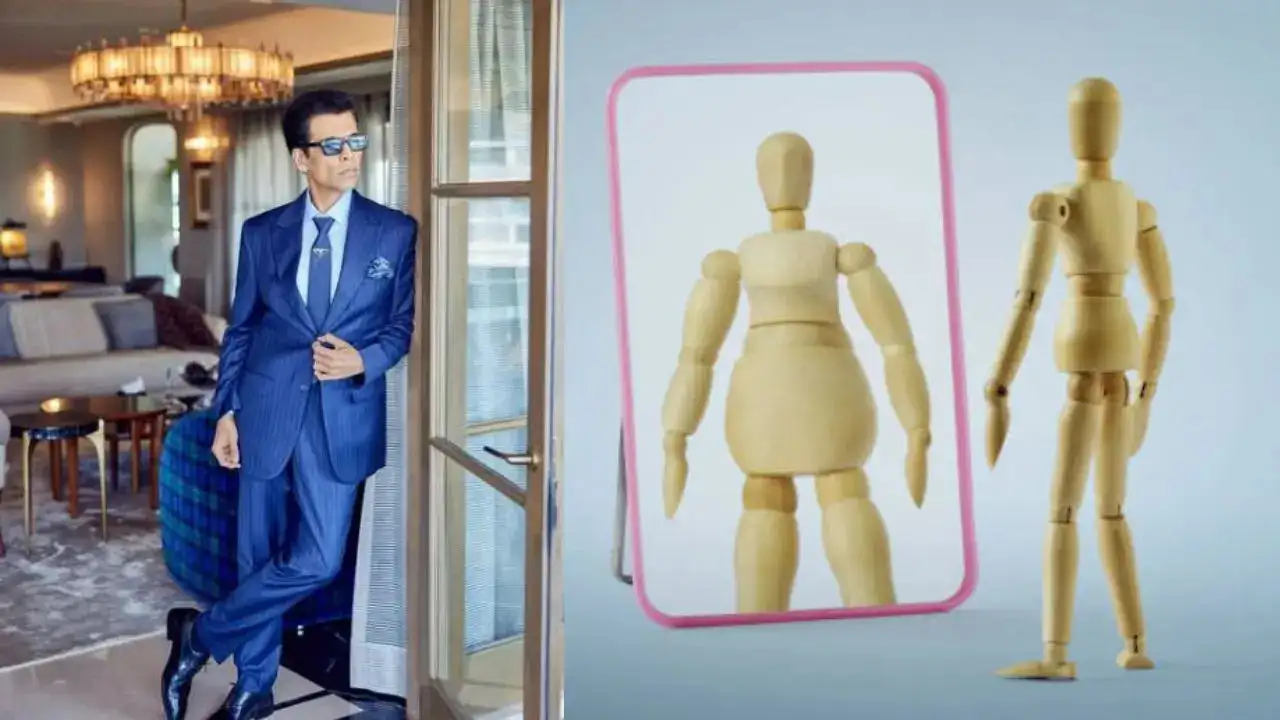
The 52-year-old filmmaker says body dysmorphia has impacted his self-image over the years (Pic: Instagram/iStock)
Karan Johar once again opened up about battling body dysmorphia—a mental health condition where a person spends a lot of time worrying about flaws in their appearance. However, the flaws seem to go unnoticed by others.
Speaking on a podcast, the 52-year-old filmmaker shared how this condition has impacted his self-image over the years. "After 52 years, I finally feel confident. Otherwise, I do suffer from body dysmorphia. It’s when you feel ashamed of your own body. When you feel awkward without clothes on. I go through that even now. I can’t even look at myself in the mirror," he said.
What is body dysmorphia?
Also known as body dysmorphic disorder, the condition causes you to view your own physical appearance unfairly. Experts believe negative thoughts about your body and appearance can consume you and largely impact your quality of life.
While everyone’s body has unique characteristics and differences, dysmorphia makes you believe one or more of your body’s characteristics are flawed, compelling you to spend significant amounts of time focusing on or trying to change what you think is wrong with you.
While anyone can develop the condition, doctors say it starts in your teens or early adult years. People usually develop body dysmorphia around 12 or 13 years old, and two-thirds of people with BDD develop it before the age of 18.
What are the signs and symptoms of body dysmorphia?
Body dysmorphia affects how you see yourself and feel about your appearance, and so, its signs and symptoms also take many forms, a few of which are:
- Spending excessive amounts of time thinking about the “flaws” or “defects” in your body
- Feeling compelled to look at or check your appearance whenever you see the mirror
- Changing your appearance frequently to feel satisfied
- Frequently taking selfies to check your appearance, or using apps and photo filters to hide or change things you don’t like
-
Feeling fear or anxiety because you think others are staring, judging, or making fun of the things you don’t like about your body or appearance. Some people even get panic attacks when looking at things they don’t like about their bodies in a mirror or reflective surface.
- Feeling shame or disgust about your body or appearance, especially the specific things you think are problems.
- Compulsive grooming behaviours that become harmful, like plucking or pulling hair all the time
- Avoid situations where people might notice the things you don’t like about yourself. This can disrupt your work or school activities or cause you to avoid social gatherings.
- Repeated medical procedures, such as cosmetic surgery
- Thoughts of self-harm or suicide because of your appearance.
What causes body dysmorphia?
Experts do not have any clue on how or why body dysmorphia happens, but they suspect it involves multiple factors, which include:
- Genetics
- Brain structure, chemistry, and activity differences
- Cultural influences and popular media
- A history of childhood abuse, neglect, or bullying
Experts say those who have dysmorphia are more likely to have certain other mental health conditions, including anxiety disorders, depression, eating disorders, OCD, and even substance abuse disorders.
Get Latest News Live on Times Now along with Breaking News and Top Headlines from Health and around the world.
